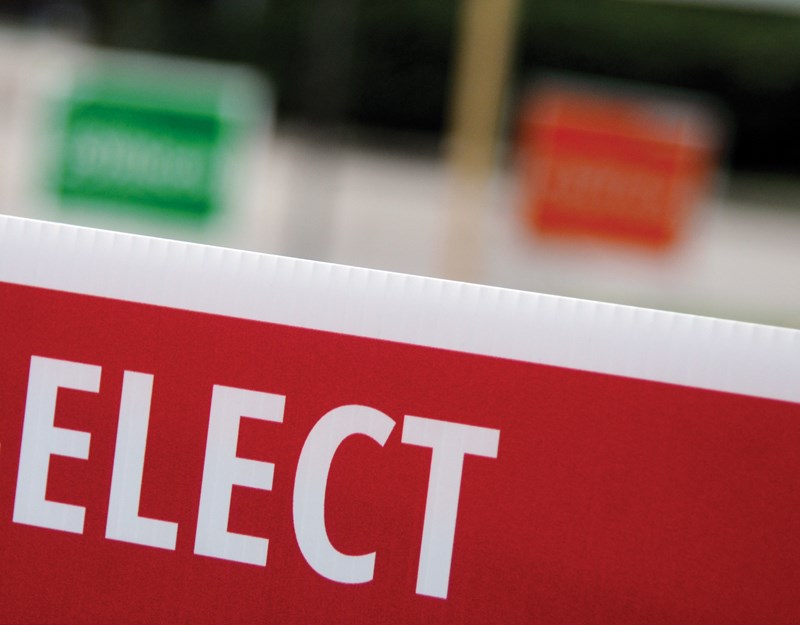This story has been amended since posting to include Conservative Party of Canada's Heather Leung in the list of candidates for the Burnaby North-Seymour riding.
Winning North Shore ridings will be key for both Liberals and Conservatives now battling to form the next government, say local political commentators.
With the federal election officially underway, local ridings are very much up for grabs, said Greg Lyle, a pollster and public opinion strategist who lives in the riding of West Vancouver-Sunshine Coast-Sea to Sky Country.
Suburban seats surrounding both Vancouver and Toronto are considered “must wins” by parties hoping to form a majority, said Lyle, and North Shore ridings have traditionally swung back and forth between Liberal and Conservative.
“It’s a bellwether for the momentum across the country,” said Lyle.
Gerald Baier, a UBC political science professor who lives in North Vancouver, agreed that if the election is close, B.C.’s seats will matter and may make the difference between a majority government and some kind of coalition.
“All three major parties want to win seats here so they’re all taking it seriously. It will be a real election here. There will be lots of visits from leaders,” said Baier.
Right out of the gate, the election is “the Liberals’ to lose,” said Lyle.
That’s because while the Liberals and Conservatives entered the race almost neck and neck in the polls, the Liberal vote distribution is more favourable in terms of translating into winning seats, he said.
But never underestimate what can happen during a campaign, said Baier. “It’s not a runaway for anyone. Campaigns matter a lot. Polls at the beginning of a campaign don’t tell us everything there is to know.”
In the last election, Liberal Pam Goldsmith-Jones – a former West Vancouver mayor – handily won West Vancouver-Sunshine Coast-Sea to Sky Country with over 54 per cent of the vote. But after Goldsmith-Jones announced she wasn’t running again in May, the party waited three months before announcing Patrick Weiler, a relative unknown, to carry the Liberal banner. He faces off against Conservative candidate Gabrielle Loren, a former West Vancouver Chamber of Commerce president, and Dana Taylor running for the Green Party. New to the scene is People’s Party of Canada candidate Robert (Doug) Bebb. The NDP has yet to announce a candidate, a situation Lyle says the NDP has found itself in across the country.
In North Vancouver, a classic rematch is forming between Liberal Jonathan Wilkinson, who won the seat with 57 per cent of the vote in 2015, and Conservative Andrew Saxton – the former MP whom Wilkinson defeated last time around.
“This is really the sort of battle that’s going to determine the outcome of the election,” said Lyle.
Also vying for the seat are Justine Bell of the NDP, former journalist George Orr of the Green Party and Azmairnin Jadavji of the People’s Party.
Burnaby North-Seymour, meanwhile, remains a “wild card” riding, said Lyle – partly because the two parts of the riding – split by Burrard Inlet – don’t have a lot in common.
One exception to that is the controversy surrounding the Trans Mountain pipeline, for which the riding remains “ground zero.” Liberal Terry Beech, who won the riding with 36 per cent of the vote last time, is being challenged by NDP candidate and former MP Svend Robinson, Amita Kuttner, a Green candidate with family roots in North Vancouver, Heather Leung of the Conservative Party of Canada and People’s Party candidate Rocky Dong.
“The big story there is Svend coming back and whether he can pull it off. His last attempt to make a comeback didn’t work out, actually,” said Baier.
He adds pipeline politics will likely be a big factor in the riding.
“Burnaby North-Seymour is ground zero in terms of what the Liberals can manage in terms of their environmental credentials,” said Baier.
Housing, affordability in general and climate change could all be key issues as the campaign heats up in local ridings, said Lyle.
Also possible is that the election may come down to more superficial things like the character issues between Scheer and Trudeau, said Baier, rather than substantial policies.
Beyond that, the tight race is likely to make for a “very, very negative campaign” on the part of both the Liberals and Conservatives, said Lyle. In order to motivate voters, “they need to have people really concerned about the other evil,” he said.
Negative campaigns continue to be a fixture, he added because “generally they work.” Voters go to the polls Oct. 21.



